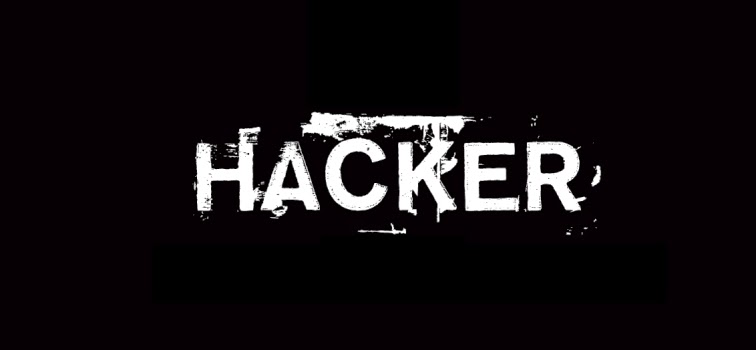The Peruvian hackers have broken into military, police, and other sensitive government networks in Argentina, Colombia, Chile, Venezuela and Peru, defacing websites and extracting sensitive data to strut their programming prowess and make political points.
Their latest stunt may be their most consequential. Emails that the LulzSecPeru hackers stole from the Peruvian Council of Ministers' network and dumped online last month fueled accusations that top Cabinet ministers have acted more like industry lobbyists than public servants.
They helped precipitate a no-confidence vote last week that the Cabinet barely survived.
The hackers are a compact, homegrown version of the U.S. and U.K-based LulzSec "black hat" hacker collective that grew out of the Anonymous movement, which has variously attacked the Church of Scientology and agitated on behalf of the WikiLeaks online secret-spillers and Occupy Wall Street.
A lot of "hacktivism" out of the United States and western Europe has waned or been driven underground after police pressure and arrests, said Gabriella Coleman, an anthropologist at McGill University, in Montreal, Canada, who has studied the phenomenon.
"The hackers in Latin America, however, never really stopped," Coleman said.
Of them, LulzSecPeru is widely considered the region's most skillful and accomplished hacktivist team, said Camilo Galdos, a Peruvian digital security expert, their signature exploit hijacking the Twitter accounts of Venezuela's president and ruling socialist party during elections last year.
"Happy Hunting!" the LulzSecPeru hackers — they say they are two young men — wrote last month when they dumped online the estimated 3,500 emails of then-Prime Minister Rene Cornejo, dating from February to July.
Cornejo told reporters: "The concern isn't so much for the information to be found there but for the fact that privacy was violated." His successor, Ana Jara, said some of the purloined emails may have concerned matters of "national defense."
But what reporters found instead was evidence of the inside influence of Peru's fishing and oil industry lobbies, putting the country's energy and finance ministers in the hot seat.
In one missive, a fishing industry executive asks the finance minister if the anchoveta season can be extended. She later gets her wish.
The energy minister, in a testy email exchange, impatiently dismisses objections by the environment minister to his coziness with an Australian oil company with offshore concessions. Oil industry technicians — not regulators — are best qualified to deem whether environmental impact studies are necessary for exploratory seismic testing, he says.
The "CornejoLeaks" spectacle, as the press dubbed it, delighted the hackers.
"We're mixed up in everything," one of the duo, who goes by the nickname Cyber-Rat, boasted in an encrypted online chat with The Associated Press into which he had tunneled, hiding his digital tracks. "There is no limit to the hacking."
Cyber-Rat says he's 17 and will quit before becoming an adult to avoid landing in prison. He handles the social networking, cultivates the Anonymous activists who help publicize LulzSecPeru's hacks and admits to "a tendency toward narcissism." His partner goes by Desh501, says he is between 19 and 23 and a university student.
By Frank Bajak(abcnews)
Their latest stunt may be their most consequential. Emails that the LulzSecPeru hackers stole from the Peruvian Council of Ministers' network and dumped online last month fueled accusations that top Cabinet ministers have acted more like industry lobbyists than public servants.
They helped precipitate a no-confidence vote last week that the Cabinet barely survived.
The hackers are a compact, homegrown version of the U.S. and U.K-based LulzSec "black hat" hacker collective that grew out of the Anonymous movement, which has variously attacked the Church of Scientology and agitated on behalf of the WikiLeaks online secret-spillers and Occupy Wall Street.
A lot of "hacktivism" out of the United States and western Europe has waned or been driven underground after police pressure and arrests, said Gabriella Coleman, an anthropologist at McGill University, in Montreal, Canada, who has studied the phenomenon.
"The hackers in Latin America, however, never really stopped," Coleman said.
Of them, LulzSecPeru is widely considered the region's most skillful and accomplished hacktivist team, said Camilo Galdos, a Peruvian digital security expert, their signature exploit hijacking the Twitter accounts of Venezuela's president and ruling socialist party during elections last year.
"Happy Hunting!" the LulzSecPeru hackers — they say they are two young men — wrote last month when they dumped online the estimated 3,500 emails of then-Prime Minister Rene Cornejo, dating from February to July.
Cornejo told reporters: "The concern isn't so much for the information to be found there but for the fact that privacy was violated." His successor, Ana Jara, said some of the purloined emails may have concerned matters of "national defense."
But what reporters found instead was evidence of the inside influence of Peru's fishing and oil industry lobbies, putting the country's energy and finance ministers in the hot seat.
In one missive, a fishing industry executive asks the finance minister if the anchoveta season can be extended. She later gets her wish.
The energy minister, in a testy email exchange, impatiently dismisses objections by the environment minister to his coziness with an Australian oil company with offshore concessions. Oil industry technicians — not regulators — are best qualified to deem whether environmental impact studies are necessary for exploratory seismic testing, he says.
The "CornejoLeaks" spectacle, as the press dubbed it, delighted the hackers.
"We're mixed up in everything," one of the duo, who goes by the nickname Cyber-Rat, boasted in an encrypted online chat with The Associated Press into which he had tunneled, hiding his digital tracks. "There is no limit to the hacking."
Cyber-Rat says he's 17 and will quit before becoming an adult to avoid landing in prison. He handles the social networking, cultivates the Anonymous activists who help publicize LulzSecPeru's hacks and admits to "a tendency toward narcissism." His partner goes by Desh501, says he is between 19 and 23 and a university student.
By Frank Bajak(abcnews)




